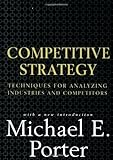SCIP defines CI as follows:
Competitive Intelligence: A systematic and ethical program for gathering, analyzing, and managing external information that can affect your company's plans, decisions, and operations.
Put another way, CI is the process of enhancing marketplace competitiveness through a greater -- yet unequivocally ethical -- understanding of a firm's competitors and the competitive environment.
Specifically, it is the legal collection and analysis of information regarding the capabilities, vulnerabilities, and intentions of business competitors, conducted by using information databases and other "open sources" and through ethical inquiry. SCIP's members conduct CI for large and small companies, providing management with early warning of changes in the competitive landscape.
CI enables senior managers in companies of all sizes to make informed decisions about everything from marketing, R&D, and investing tactics to long-term business strategies. Effective CI is a continuous process involving the legal and ethical collection of information, analysis that doesn't avoid unwelcome conclusions, and controlled dissemination of actionable intelligence to decision makers.
Competitive intelligence is the gathering and analysis of information from human and published sources about market trends and industry developments that allows for advanced identification of risks and opportunities in the competitive arena.
Ben Gilad, PhD
Competitive intelligence is a formalized, yet continuously evolving process by which the management team assesses the evolution of its industry and the capabilities and behavior of its current and potential competitors to assist in maintaining or developing a competitive advantage.
Prescott and Gibbons
Competitive intelligence is a structured approach to gathering, analyzing and communicating data to make informed business decisions. The data that is obtained can be collected from publicly available published or human sources (so-called primary and secondary sources). Any attempts to gather information illegally and unethically may lead to utilizing inaccurate data.
Competia
Compare these to the Definition of Business Intelligence.

 While there are many interpretations of the term "competitive intelligence," it is useful to view it as defined by the Society of Competitive Intelligence Professionals (SCIP) in first place.
While there are many interpretations of the term "competitive intelligence," it is useful to view it as defined by the Society of Competitive Intelligence Professionals (SCIP) in first place.











 Competitive Intelligence
Competitive Intelligence